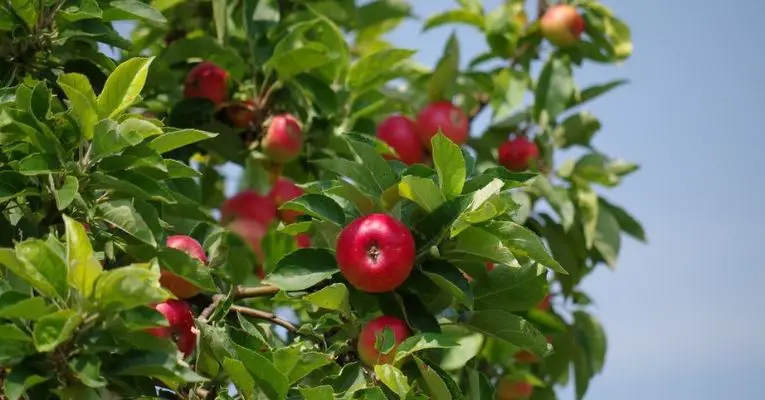Atlanta to Transform 7 Acres of Vacant Land Into Country's Largest Free Food Forest
Emma Fiala

Atlanta’s City Council just voted in favor of transforming over 7 acres of vacant property into the state of Georgia’s first food forest. The measure, which paves the way for the largest food forest in the country according to Councilwoman Carla Smith, was approved last Monday after a unanimous vote.
The Urban Food forest will be available free of charge and will include edible trees, shrubs, and vines in addition to traditional community garden beds as well as walking trails, public gathering spaces and other features.
“It’s just like going into a park and picking muscadines from a bush,” Smith said.
The land, currently own by environmental agency The Conservation Fund, will be sold to the city of Atlanta for $157,384.00. The agency was in possession of the land after it was abandoned due to a failed business venture.
According to the The Atlanta Journal-Constitution, “The Urban Food Forest at Browns Mill has been in the works since November 2016 when the city accepted an $86,150 grant from the U.S. Forest Service Community Forest and Open Space Program.
Atlanta’s Department of Parks and Recreation will oversee the property and Trees Atlanta, will maintain the Urban Food Forest. Trees Atlanta has secured $121,500.00 in funding and plans to employ two part-time workers including including a Forest Ranger and a Community Workforce Educator.
Plans for the Urban Food forest conform to the city’s goal to “strengthen local food economy to ensure 85 percent of the city residents are within one-half mile of fresh food access by 2021.” According to the measure, “parks, greenspace and recreation are an integral part of the fabric of the City of Atlanta.”
According to the U.S. Department of Agriculture, 36 percent of Atlanta was classified a food desert in 2017 and a quarter of the city’s residents must travel more than a half-mile to purchase fresh produce.
Hopefully Atlanta will be the first of many cities pushing for legislation that focuses on the wellbeing of their residents and transitions vacant lands into productive spaces that benefit the people. With many Americans living in areas classified as food deserts, it only makes sense to further legislation like Atlanta’s Ordinance 19-O-1251 to make use of the vacant lands that dot America’s urban landscapes.
Thanks to: https://themindunleashed.com
Emma Fiala
- May 28, 2019

Atlanta’s City Council just voted in favor of transforming over 7 acres of vacant property into the state of Georgia’s first food forest. The measure, which paves the way for the largest food forest in the country according to Councilwoman Carla Smith, was approved last Monday after a unanimous vote.
The Urban Food forest will be available free of charge and will include edible trees, shrubs, and vines in addition to traditional community garden beds as well as walking trails, public gathering spaces and other features.
“It’s just like going into a park and picking muscadines from a bush,” Smith said.
The land, currently own by environmental agency The Conservation Fund, will be sold to the city of Atlanta for $157,384.00. The agency was in possession of the land after it was abandoned due to a failed business venture.
According to the The Atlanta Journal-Constitution, “The Urban Food Forest at Browns Mill has been in the works since November 2016 when the city accepted an $86,150 grant from the U.S. Forest Service Community Forest and Open Space Program.
Atlanta’s Department of Parks and Recreation will oversee the property and Trees Atlanta, will maintain the Urban Food Forest. Trees Atlanta has secured $121,500.00 in funding and plans to employ two part-time workers including including a Forest Ranger and a Community Workforce Educator.
Plans for the Urban Food forest conform to the city’s goal to “strengthen local food economy to ensure 85 percent of the city residents are within one-half mile of fresh food access by 2021.” According to the measure, “parks, greenspace and recreation are an integral part of the fabric of the City of Atlanta.”
According to the U.S. Department of Agriculture, 36 percent of Atlanta was classified a food desert in 2017 and a quarter of the city’s residents must travel more than a half-mile to purchase fresh produce.
Hopefully Atlanta will be the first of many cities pushing for legislation that focuses on the wellbeing of their residents and transitions vacant lands into productive spaces that benefit the people. With many Americans living in areas classified as food deserts, it only makes sense to further legislation like Atlanta’s Ordinance 19-O-1251 to make use of the vacant lands that dot America’s urban landscapes.
Thanks to: https://themindunleashed.com






 Sat Mar 23, 2024 11:33 pm by globalturbo
Sat Mar 23, 2024 11:33 pm by globalturbo

